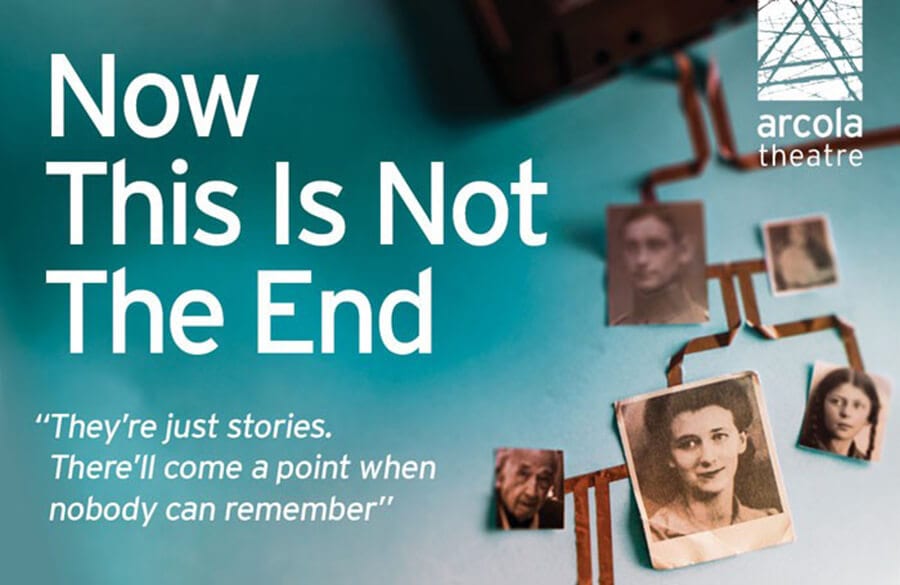They say your name lasts only three generations. In the profound essay Urn Burial, the Renaissance essayist Thomas Browne describes how ‘There is no antidote against the Opium of time, which temporally considereth all things. Our Fathers find graves in our short memories… Grave stones tell truth scarce forty years’. Rose Lewenstein, who recently emerged from the Royal Court’s Young Writers’ Festival in 2012, enters into the deeply discussed temporal discourse in her fifth play, Now This Time is Not the End. The one-act drama flickers between different stages of the lives of the play’s three central characters, the grand-mother, daughter and grand-daughter of a family. Initially, we are presented with the young university student Rosie, charming and antagonistic, played vibrantly by Rosie Blackborow. Her anxious mother, Susan (Wendy Nottingham) provides the bridge between Rosie and her grand-mother Eva (Brigit Forsyth) in a fascinating exploration of the complex inter-generational relationship in families. Forsyth convincingly portrays an ageing grand-mother who is gradually slipping into dementia. Susan is eager to uphold her legacy which threatens to be lost forever, as the play dips into the dark past of the half-Jewish Eva and her youth in Nazi Germany. Cassette tapes and letters are the crucial motifs in Susan’s endeavours to preserve and comprehend her mother’s dark past. ‘They’re just stories. There’ll come a point when nobody can remember’ sighs Susan as she recognises how her mother’s legacy is slowly slipping away, into the depths of time passed.
Indecipherable letters, and damaged cassette tapes are motifs of Susan’s struggles to preserve and comprehend the past. Lewenstein’s drama is a masterful concoction of anxiety, tragedy and comic levity. Susan’s husband and Rosie’s step-father Paul (Andrew Whipp) offers a touch of light-heartedness with his ‘anything for an easy life’ approach. The cocktail of tragedy and comedy which is sewn together by thoughtful dialogue threatens to wobble the walls and shake the foundations of the intimate Arcola Theatre. The role of the play’s two male characters is a secondary one, which is refreshing in itself. It should not be the case, but it is refreshing to watch a play in which all of its central roles are occupied by females.
At just one hour and fifteen minutes, Now This is Not the End resists illustrating the full picture of the family story. It resists the complete characterisation of the three women, particularly the grand-mother Eva as we witness her diminishing legacy as her dementia develops. However, this is by no means a flaw in the play. It is a powerful representation of what gets lost in the passing of time. A representation of the cyclical patterns in history, as Rosie inherits much from, and appears to mirror her grand-mother in many aspects. This is a powerful, thought-provoking production. Now This is Not the End is an indication of the exciting prospect that is Rose Lewenstein. Against the backdrop of Berlin’s recent Theatertreffen Festival, this play seeks to provoke audience questions and consideration, rather than force-feeding them logical answers. The theatrical program on sale for £3 in the theatre’s lobby contains Lewenstein’s script in its entirety. We would be fools to cast it onto some dusty bookshelf somewhere and forget its existence, like the cassette tapes and letters documenting Eva’s past. Surely, Lewenstein and this play will both stand the test of time. A very special production.

